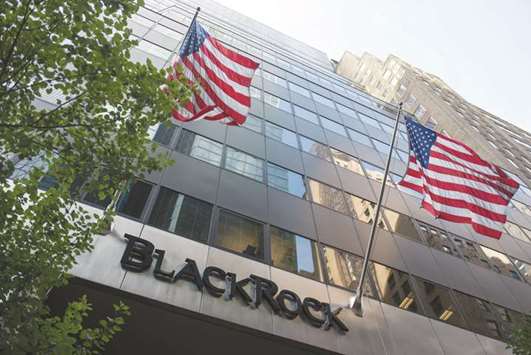It’s an all-access pass, an opportunity to influence a $118bn investing giant from the inside. And BlackRock got one.
Hired by the University of California to advise on private equity deals, the world’s largest asset manager has embedded an executive at the system’s investing office in Oakland, gaining a true seat at the table with the managers who write the cheques.
The arrangement, which started last July, gives BlackRock a mandate to screen and vet opportunities – and most importantly buy stakes on behalf of the university in funds run by competitors such as Apollo Global Management and Blackstone Group.
BlackRock is making a big push to expand in private equity, an area where it has historically been a minor player. Institutional investors, meanwhile, are looking to the asset class to help boost returns and broaden their portfolios beyond stocks and bonds, while seeking leverage to reduce fees. Having a full-time in-house BlackRock expert enhances the university’s capabilities, UC Chief Investment Officer Jagdeep Singh Bachher said.
“I like partnerships,” Bachher said during an interview in San Francisco. “It’s about learning at all levels.”
BlackRock and the UC have had a long relationship, in part because BlackRock founder Larry Fink is a graduate of the University of California at Los Angeles and a major donor, according to Bachher. The UC and BlackRock had a similar advisory partnership involving public equity and the university is currently looking at working with State Street Corp, he said. The embedded advisers stay at the investment office for six to 12 months, he said.
The University of California had about $4bn invested in private equity as of March 31, with a target annual return 1.5% greater than the benchmark Russell 3000 Index. The allocation would more than double to about $9.3bn under plans approved this year. The investment office, which manages retirement and endowment money for the 10-campus university system, currently has more than $10bn in cash as dry powder awaiting suitable opportunities.
The BlackRock-UC agreement calls for the New York-based firm to examine offers, make investments and educate Bachher’s staff on the private equity industry, opportunities and technology, according to Brian Beades, a BlackRock spokesman.
“In connection with that assignment, we also provide them with access to BlackRock talent and resources to help them evaluate other third-party private equity opportunities,” Beades said in an e-mail.
BlackRock won’t invest in its proprietary private equity funds on behalf of the UC Regents under the agreement, he said. The university hasn’t released the size of the mandate managed by BlackRock or fees paid to outside advisers for the period since the contract took effect. The terms are exempt from disclosure as an “alternative investment agreement,” Dan Scannell, counsel for the UC Office of the President, said in response to a public records request.
The agreement needs to ensure that BlackRock uses its access to benefit the university while also assuring competitors that it’s not self-dealing, a concern that could discourage offers on some deals, according to Amy L McDuffee, CEO of Mosaic Governance Advisors, a Westminster, Colorado-based firm that advises public pensions on governance. Pensions and sovereign wealth funds often welcome “secondments” from external asset managers to improve their capabilities and better align their interests, according to Ashby Monk, a researcher on pension and sovereign wealth fund design at Stanford University’s Global Projects Center.
“The goal is to shrink the number of external relationships and increase the importance of those relationships to both parties,” he said.
Not everyone is sold on the idea. The $355bn California Public Employees’ Retirement System in December invited BlackRock and five other firms to submit proposals for a partnership to expand access to private equity co-investments, separately-managed accounts and direct investments.

BlackRock logo is displayed at its offices in New York. The world’s largest asset manager is making a big push to expand in private equity, an area where it has historically been a minor player.
